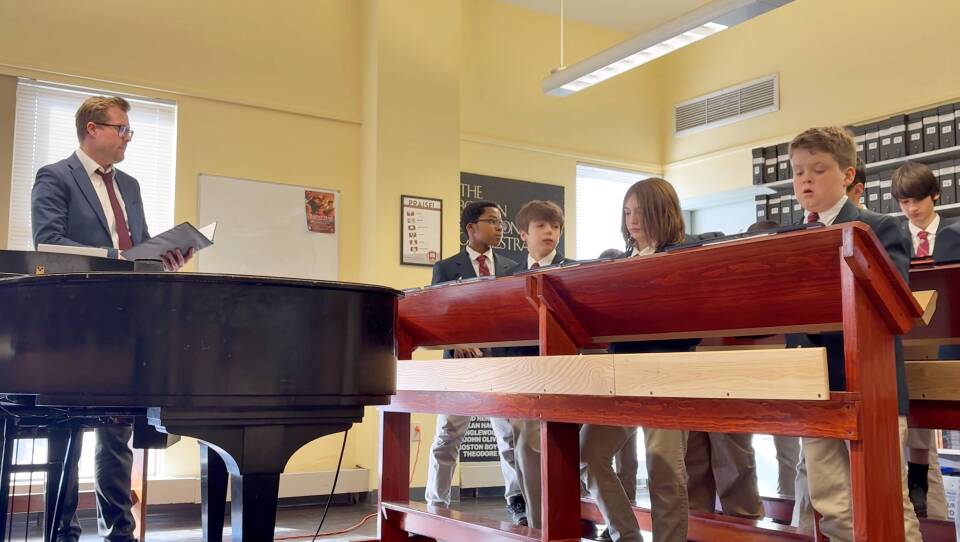It’s a Monday at 9 a.m., and it’s safe to say that most boys in America are not rehearsing a German opera.
But that’s exactly what’s happening at St. Paul’s Choir School in Cambridge.
About 30 fidgety boys — some as young as 10 — flank music director Brandon Straub at the piano. They’re rehearsing Erich Wolfgang Korngold’s “Die tote Stadt,” meaning “The Dead City,” as they prepare for a performance with the Boston Symphony Orchestra and Boston Lyric Opera.
“There just aren’t many schools doing what we do,” Straub said after the practice. “I think participation in many music programs in the United States is largely girl heavy ... it’s like boys are finding it harder and harder to participate in music, or they’re less drawn to it than maybe they once were.”
He ticks off the choir schools that have shuttered or merged in recent years: The Saint Thomas Choir School in Manhattan is outsourcing it’s academic program to help stay afloat, the American Boychoir School in Princeton, the Newark Boys Chorus School.
But for a certain kind of kid, St. Paul’s has a special appeal.
Eleven-year-old Variondoho “Doe” Tibert is one of them. Doe’s parents immigrated to Massachusetts from Haiti, and he found the school one day playing around on his computer.
“I see this school called St. Paul’s Choir School, and I go to my mom and ask her, 'Do you know the school?’ And she’s like, 'Yes, it’s a school where everybody likes to sing,'” he said. “And then I asked if I could go there because she knows I like to sing a lot.”
Doe’s friend, 12-year-old Sebastian Gudiel-Mendez, said he had a period of adjustment coming to the school two years ago. The boys sing for two hours nearly every day, as well as at the noontime Mass in St. Paul’s church next door. That’s when they wear robes and ruffs — those starchy, crimped collars that were popular in Elizabethan England.
“At first I was a little bit wary,” he said. “But after a couple of years, I’ve grown to really grew fond of the school ... and going to these fantastic places I never thought I could ever go.”
Sebastian said he’s going to France to perform next year. Other classes have traveled to Rome, met the pope, and recorded Christmas CDs. The boys even sang at Rose Kennedy’s funeral.
Head of school Patrick Moran says it’s a privilege to watch the students develop.
“I am amazed every day by them and inspired, and sometimes a little bit frustrated because they are middle school boys,” he said, “but they’re phenomenal.”
Moran said the school is rooted in tradition, but the students aren’t monks. They have to learn how to nurture their own voice, as well as how to stand still for long stretches in performances. They learn Latin in addition to music theory as part of their academics.
Despite the school’s small size — just 43 students this year — some will go on to study at Roxbury Latin School, a private all-boys high school, followed by prestigious colleges, including Harvard.
Moran said part of the secret to the school’s success over its 62-year history is its high expectations of students.
“Boys at this age, sort of middle school age specifically, crave a couple of things, and one of them is competency in something,” Moran said. “They have a very tangible experience for how much practice you need to become excellent at something.”
Puberty will eventually come for these boys and their voices will change. Whether they continue to sing or not, Moran said the lesson of mastering an art will stay with them forever.





